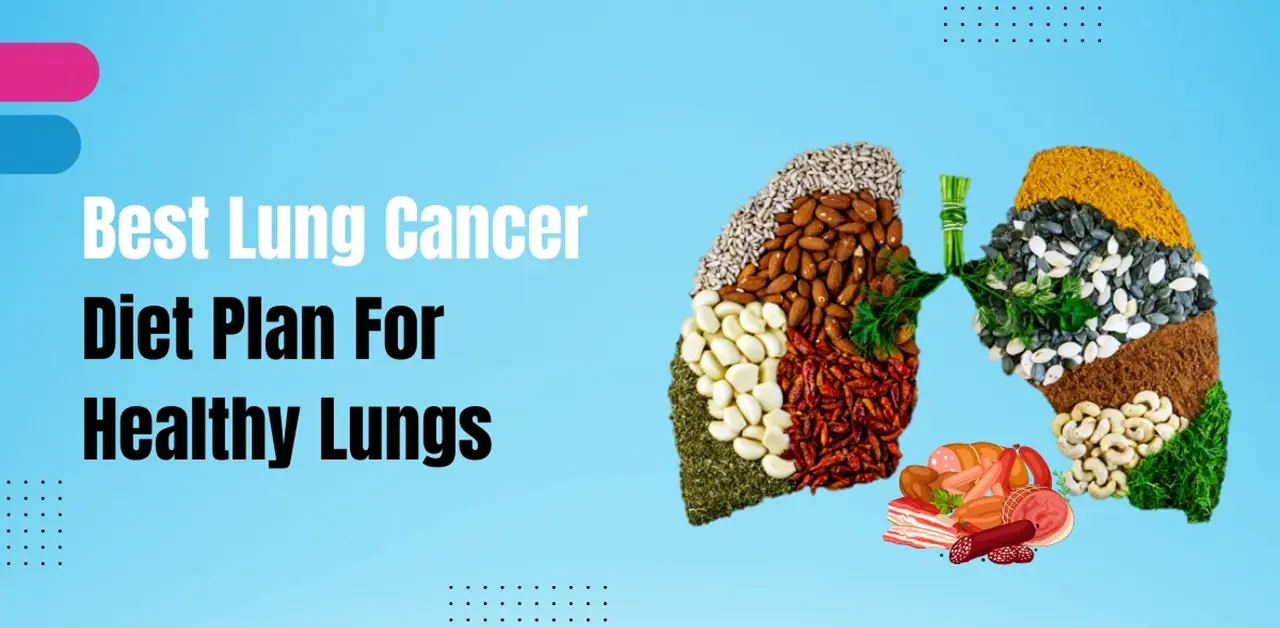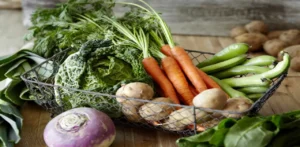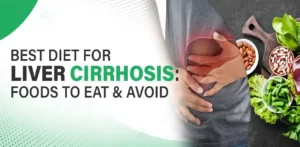Contents
Lung cancer, also known as bronchial cancer, is a serious illness that affects millions of people worldwide. While medical treatments like surgery, chemotherapy, and radiation are primary methods for combating lung cancer, nutrition plays a crucial role in supporting patients during treatment and improving their overall health. This blog post will explore the importance of a proper lung cancer diet, highlight the best foods for lung cancer patients, and provide practical lung cancer nutrition tips. Additionally, we’ll introduce IntRest, a platform where you can find and order healthy food tailored to your illness, diet, and allergies.
Understanding Lung Cancer and Its Impact on Nutrition
Lung cancer originates in the cells of the lungs and can spread to other parts of the body. The two main types are non-small cell lung cancer (NSCLC) and small cell lung cancer (SCLC). Symptoms often include coughing, chest pain, shortness of breath, and unexplained weight loss. These symptoms and the side effects of treatments can significantly impact a patient’s nutritional status.
Patients undergoing lung cancer treatment often face challenges such as reduced appetite, difficulty swallowing, nausea, and changes in taste. These issues can lead to malnutrition, making it essential to focus on a diet that not only meets caloric needs but also provides the necessary nutrients to support the body’s immune system and enhance overall well-being.
The Importance of a Lung Cancer Diet
A well-balanced lung cancer diet is integral to managing the disease and alleviating treatment side effects. Proper nutrition can help maintain strength, improve the body’s response to treatment, and support recovery. Here are some key components of a lung cancer-friendly diet:
- High-Quality Protein: Essential for tissue repair and immune function. Include lean meats, fish, eggs, dairy, legumes, and plant-based proteins like tofu and quinoa.
- Healthy Fats: Help maintain energy levels. Opt for sources such as avocados, nuts, seeds, and olive oil.
- Complex Carbohydrates: Provide sustained energy. Choose whole grains, fruits, vegetables, and legumes.
- Vitamins and Minerals: Support various bodily functions and enhance immune health. Focus on a variety of colorful fruits and vegetables, nuts, seeds, and whole grains.
- Hydration: Critical for overall health and to help manage treatment side effects like dry mouth and constipation. Aim for at least 8-10 cups of water daily, unless otherwise directed by a healthcare provider.
Also Read: “Effective Diet and Nutrition Tips for Stomach Cancer Patients”
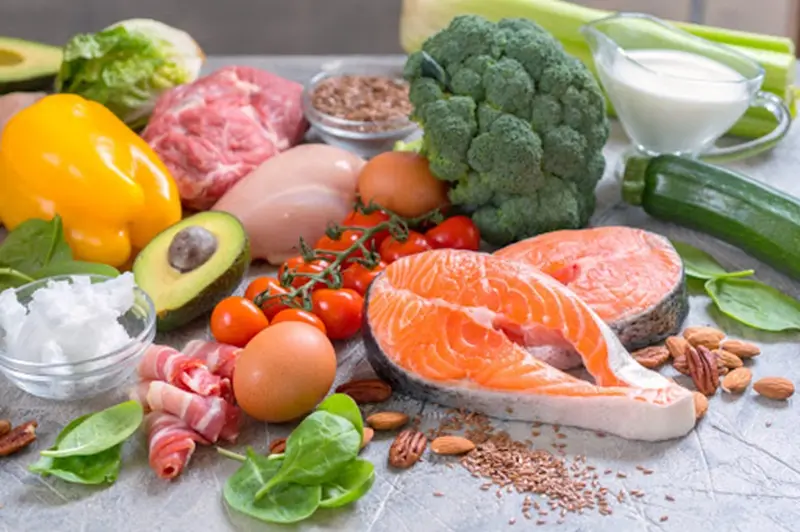
Best Foods for Lung Cancer Patients
Certain foods have specific benefits for lung cancer patients, helping to manage symptoms and support treatment:
- Cruciferous Vegetables: Broccoli, cauliflower, and Brussels sprouts are rich in antioxidants and compounds that may help protect against cancer.
- Berries: High in antioxidants, berries like blueberries, strawberries, and raspberries can help reduce inflammation and support immune health.
- Leafy Greens: Spinach, kale, and Swiss chard provide essential vitamins and minerals, including folate and iron.
- Fatty Fish: Salmon, mackerel, and sardines are high in omega-3 fatty acids, which have anti-inflammatory properties.
- Whole Grains: Brown rice, oatmeal, and quinoa offer fiber and essential nutrients to support digestive health.
Nutrition During Lung Cancer Treatment
During treatment, maintaining proper nutrition can be challenging. Here are some lung cancer nutrition tips to help manage these challenges:
- Small, Frequent Meals: Eating smaller portions more frequently can help combat loss of appetite and maintain energy levels.
- Nutrient-Dense Foods: Focus on foods that provide a high amount of nutrients in a small volume, such as nuts, seeds, avocados, and protein-rich smoothies.
- Soft and Easy-to-Swallow Foods: If swallowing is difficult, choose soft foods like yogurt, mashed potatoes, and soups.
- Taste Adjustments: Experiment with herbs, spices, and marinades to enhance flavors, especially if taste changes occur due to treatment.
- Stay Hydrated: Drink water, herbal teas, and clear broths to ensure adequate hydration.
Lung Cancer Nutrition Therapy
Nutrition therapy involves tailored dietary interventions to address the specific needs of lung cancer patients. A registered dietitian can help create a personalized nutrition plan that aligns with medical treatments and addresses individual dietary preferences and restrictions. This approach can improve treatment outcomes and enhance the quality of life.
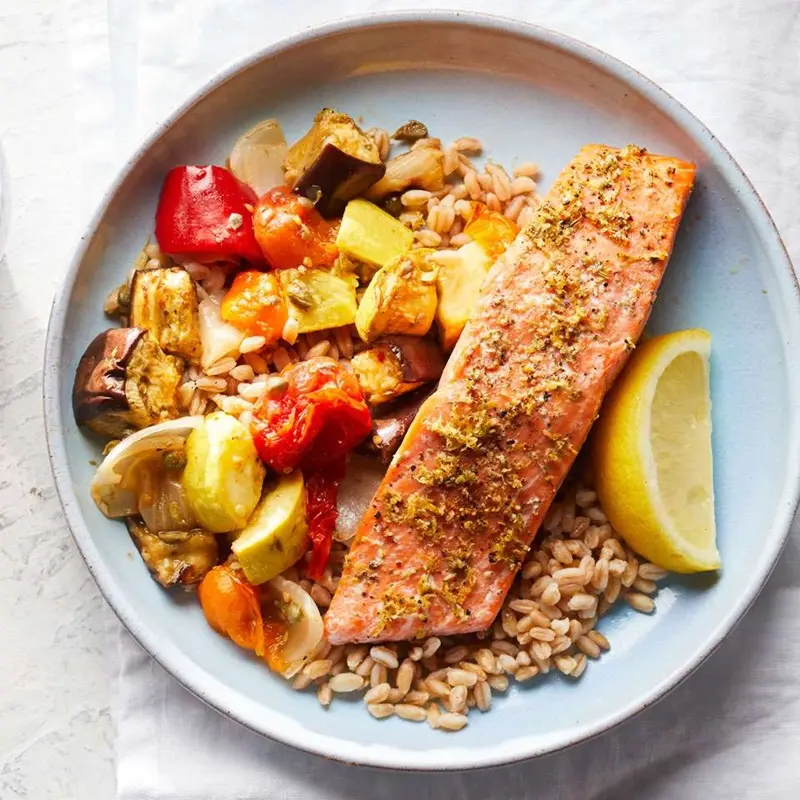
Lung Cancer-Friendly Recipes and Meal Ideas
Creating lung cancer-friendly meals can be enjoyable and beneficial for patients. Here are some meal ideas:
- Breakfast: Smoothies with berries, spinach, Greek yogurt, and a touch of honey.
- Lunch: Quinoa salad with chickpeas, cherry tomatoes, cucumber, and a lemon-tahini dressing.
- Dinner: Baked salmon with a side of steamed broccoli and sweet potatoes.
- Snacks: Almond butter on whole-grain crackers, hummus with carrot sticks, or a handful of mixed nuts.
Also Read: “Managing COPD with a Healthy Diet: Breathe Easier Every Day”
Ordering Healthy Food with IntRest
Navigating dietary needs during lung cancer can be daunting, but IntRest makes it easier. Our platform allows you to order healthy meals tailored to your specific illness, diet, and allergies. Simply select your preferences, and we’ll connect you with local restaurants that offer nutritious, lung cancer-friendly options. Whether you need meals high in protein, rich in antioxidants, or easy to swallow, IntRest has you covered.
Finding the right foods can significantly impact your journey with lung cancer. By focusing on a balanced diet, incorporating lung cancer-friendly foods, and utilizing resources like IntRest, you can support your health and well-being through nutrition. Remember, every small dietary change can make a big difference in your fight against lung cancer.
